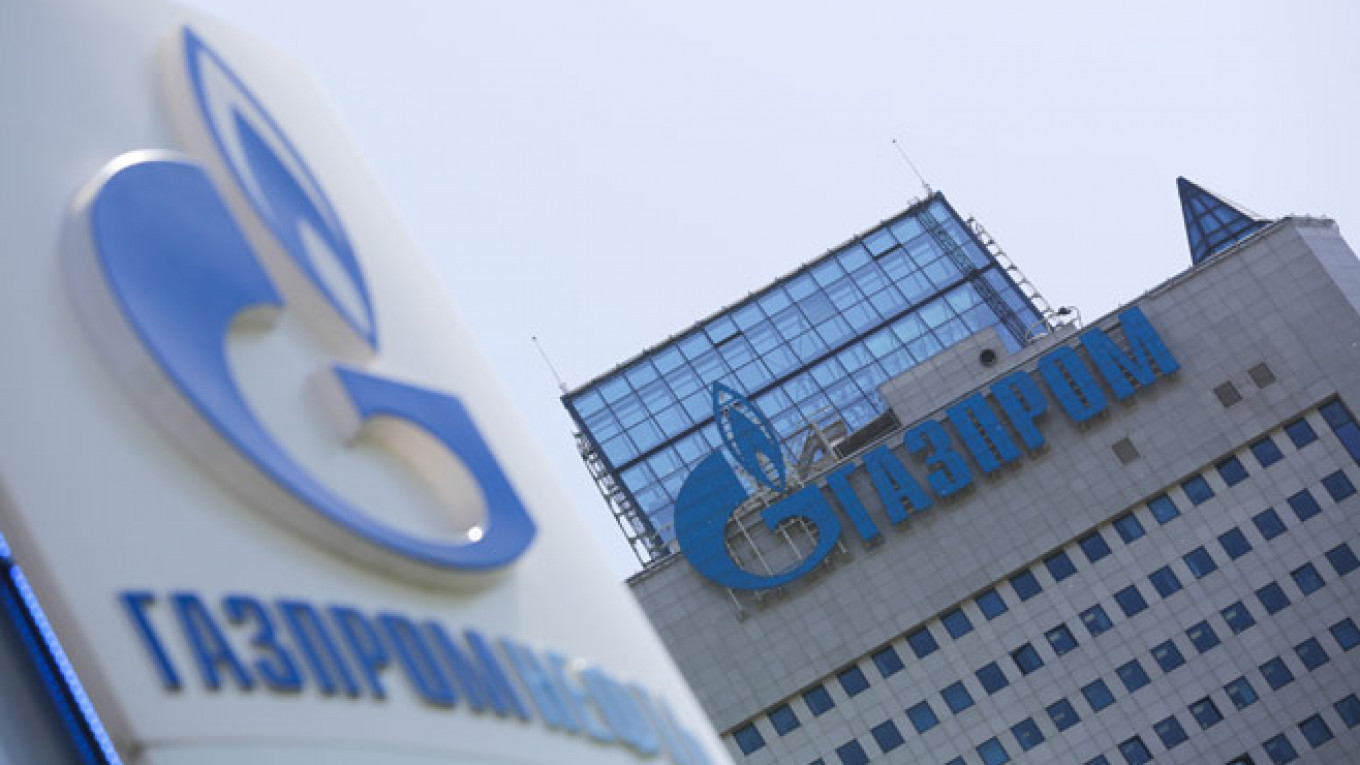Oil and gas companies earned 98 percent of all profits made by large Russian firms last year, a new ranking showed, making a mockery of attempts to wean Russia off its reliance on energy exports.
A list by the RBC news agency of the biggest 500 Russian companies — whose combined revenues equaled 77 percent of the country's economic output — also found that their combined net debt rose by almost two-fifths to 15.9 trillion rubles ($283 billion under the exchange rate at the end of 2014), an amount slightly larger than the entire Russian federal budget for that year.
The findings underline the effect on companies of a weaker Russian currency. A significant part of Russian corporate debt is denominated in foreign currency, which banks typically lend at lower interest rates than rubles, while oil and gas are exported largely in U.S. dollars. The ruble fell more than 40 percent against the dollar last year, making both hard currency debts and revenues larger in ruble terms.
The ranking also highlights Russia's failure to diversify its economy away from lucrative energy sales — something the country is now paying for. Russia's economy saw annual growth rates of around 7 percent as oil prices rose during the 2000s. But oil prices have fallen from a high of $115 per barrel last summer to six-year lows of less than $50, causing a deep recession and forcing the government to sharply curb spending.
Three energy companies topped the RBC rating, published this week. State gas behemoth Gazprom, which accounts for some 8 percent of GDP, had revenues of 5.5 trillion rubles ($143 billion at average 2014 exchange rates) last year, seven percent more than in 2013, according to RBC.
LUKoil, a privately run oil firm, saw revenues rise 24 percent during the last year to 4.7 trillion rubles ($122 billion in 2014), while its state-controlled rival Rosneft recorded a rise of 16 percent to 3.7 trillion rubles ($96 billion).
Two more state companies rounded out the top five: Sberbank, with revenues up 25 percent at 2.15 trillion rubles ($56 billion), and Russian Railways, with a 1 percent increase to 1.8 trillion rubles ($47 billion).
RBC found that firms in the energy sector together earned almost 2 trillion rubles ($52 billion), compared to profits of only about 47 million rubles ($1.2 billion) at all other companies combined.
In RBC's ranking of 2013 results, the oil and gas industry accounted for 79 percent of Russian corporate profits. But total profits for the 500 companies that year were also much higher, at 3.7 trillion rubles ($116 billion at the average exchange rate in 2013). Russia's economy slowed to 0.6 percent growth in 2014 from 1.3 percent in the previous year.
Gazprom, LUKoil and Rosneft all saw their profits fall in the latest ranking. From earning almost 2 trillion rubles ($62.8 billion) between them in 2013, their combined profits fell to 688 billion rubles ($18 billion) last year, RBC's data showed.
The single most profitable company in the new rating was Surgutneftegaz, a privately owned oil and gas firm built around enormous energy deposits in Surgut in western Siberia, which recorded profits of 885 billion rubles ($23 billion), largely thanks to a revaluation of its hard-currency cash reserves, according to RBC.
Energy companies have weathered the fall in oil prices thanks to the collapse in the ruble and a tax system that makes the state bear much of the effect of price falls. But the industry still has problems.
Western sanctions imposed over the crisis in Ukraine have cut the access of energy firms to international capital and advanced drilling technology. And President Vladimir Putin this week said the cash-strapped government should look for ways to extract more money from energy companies benefiting from the weak ruble.
Prime Minister Dmitry Medvedev on Thursday called again for diversification away from oil and gas, writing in a long op-ed in the Rossiiskaya Gazeta newspaper that energy prices could remain low for a long time and that Russia should find new internal sources of investment.
In 2009, in a similar op-ed published in the online newspaper Gazeta.ru under the headline "Go Russia!" Medvedev wrote: "Achieving leadership by relying on oil and gas markets is impossible. … Commodity exchanges must not determine Russia's fate."
However, the influence of the oil price is undimmed. Taxes from the energy sector account for around 50 percent of Russia's federal budget. The Central Bank said earlier this month that if oil prices stayed around $50 per barrel, Russia's economy would contract by 3.9-4.4 percent this year and likely shrink again in 2016.
Contact the author at [email protected]
A Message from The Moscow Times:
Dear readers,
We are facing unprecedented challenges. Russia's Prosecutor General's Office has designated The Moscow Times as an "undesirable" organization, criminalizing our work and putting our staff at risk of prosecution. This follows our earlier unjust labeling as a "foreign agent."
These actions are direct attempts to silence independent journalism in Russia. The authorities claim our work "discredits the decisions of the Russian leadership." We see things differently: we strive to provide accurate, unbiased reporting on Russia.
We, the journalists of The Moscow Times, refuse to be silenced. But to continue our work, we need your help.
Your support, no matter how small, makes a world of difference. If you can, please support us monthly starting from just $2. It's quick to set up, and every contribution makes a significant impact.
By supporting The Moscow Times, you're defending open, independent journalism in the face of repression. Thank you for standing with us.
Remind me later.






